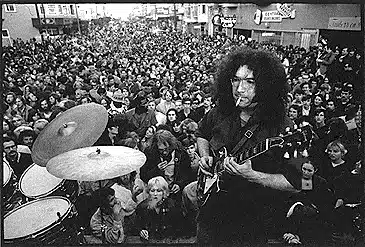What Is A Deadhead Truck?
A deadhead truck has a trailer attached but carries no freight. Deadheading means driving a cargo carrying truck (semi-truck) pulling an empty trailer. Deadheading often happens when a trucker returns or backhauls the empty cargo container to the point of origin. Be careful not to confuse “deadheading” with “bobtailing,” which happens when driving a cargo carrying truck without a trailer attached.
Deadheading in trucking is sometimes confused with bobtailing
Does a Trucking Company Pay for Deadhead Miles?
Deadhead miles are the number of miles that truckers drive with an empty load. Truckers often lose money when driving without cargo. Unfortunately, these empty miles still require paying for fuel and putting wear and tear on trucks.
Trucking companies don’t typically pay for deadhead miles. Some might pay for deadhead mileage after the first 100 miles as an incentive, although it isn’t often required. While company drivers can sometimes get paid $.60 to $.90 for deadhead mileage, owner-operators often end up covering the costs out of pocket.
Why Is Deadhead Trucking Dangerous?
Truckers face plenty of roadway challenges as it is, and much of it comes from severe weather conditions. Whether it’s high winds or black ice, truckers must take extra precautions to not get into accidents. Unfortunately, inclement weather and heavy traffic are often unavoidable.
Deadhead trucking accidents are common. When truckers are deadheading without cargo, their trailer is vulnerable to the elements. Trailers can sway and flip open, and it can make the entire truck difficult to control. If not careful, deadheading truckers can cause accidents that lead to severe injuries.
Truckers must be sure to always check local weather reports and wind conditions before accepting a job that requires driving with an empty load.
How Can Truckers Can Limit Deadheading
Truckers who are not getting deadhead mile pay may want to minimize the empty deadhead miles between loads. With national average fuel prices skyrocketing, most truckers will do anything to maximize their earnings and reduce deadhead miles that cut into their profits.
Truckers can limit deadheading by:
- Checking deadhead mileage on jobs: See if a broker or shipper includes deadhead mileage for the job. If they don’t, consider the costs you might endure.
- Looking for loads requiring return materials: If your broker has no return trip, you can look for a nearby broker for available jobs. This can be especially useful during winter months and high-wind weather when drivers want to keep their trucks weighed down.
- Using load boards: Load boards are convenient online job boards connecting carriers to shippers. Truckers can find available freight on their routes and to other destinations.
- Planning trips in advance: With load boards, you can easily plan your trip ahead of time to reduce the number of deadhead miles and increase your income.
Forms also used:
- Deadhead
- Deadhead Load
Examples of use:
- Carol just dropped her cargo in Phoenix and will be deadheading it back to Miami.
- Terrance will have to quickly dump his load and deadhead it back to Richmond.
Deadheading Trucker Slang Phrases:
- “Hauling sailboat fuel”
- “Carrying a dream load”
Other Meanings of “Deadhead”:
Deadhead: Huge fans of the band, The Grateful Dead
Source: ninetyeightytwo.tumblr.com
Deadhead: A person traveling without a ticket on a plane, like this scene from “Catch Me If You Can.”
Deadhead: In gardening, the cutting back and removal of dead flowers or blooms to allow for new growth.














